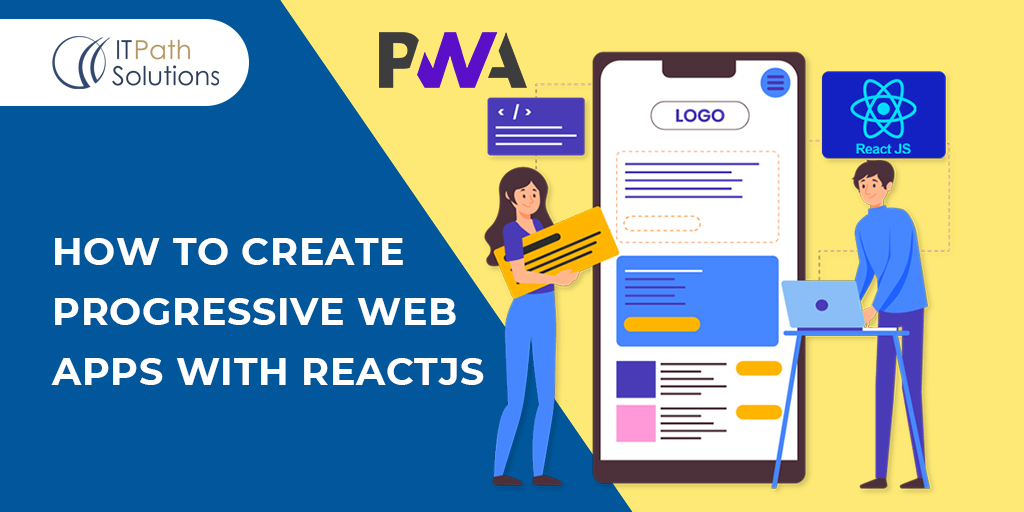Why PWA are the future of mobile development for startups?
Progressive Web Apps
PWAs that is Progressive Web Apps are supposed to be faster than native apps, easier to load and store and can perform almost all the functions that a native app will without the need for permanent installation.
PWA development is done to accelerate the business processes that require apps, fast forward development and deployment of apps and improve user experience by offering better speed and user experience across devices.

What are Progressive Web Applications and Who Needs Them?
A Progressive Web App is a website that resembles a mobile application; it runs and functions as a website so a user need not download the app. A good example of PWA is the Twitter mobile website.
PWAs are designed to work in adverse conditions such as no connectivity, network issues and different devices.
As per Google, PWA app marketing works better than traditional install and use app marketing as users are spared the process of installing a whole app from scratch and provides nearly the same user experience. Unlike apps, PWAs are also easier to maintain and their server and backend requirements are also relatively less.
The feature that Google wants developers to understand about progressive web apps is that the progressive part. As user keeps engaging more with the PWA, the features and user interaction and experience will “progressively” increase.
The Main Features of PWAs
Reliable: PWAs work under difficult network situations. Some PWAs have offline content while others indicate the user of their network unavailability while offering some limited offline features,similar to app.
Responsive: PWAs are device independent and are intended to work with full functions on any devices, mobile or desktop.
Attractive User Experience: Progressive web applications are to be designed as to be as or even more engaging than installed apps. PWAs can also use the push notification feature on your smartphone to keep you updated and provide timely, relevant updates.
Secure: PWAs are designed to use secure HTTPS. Making sure that all communication between server and the user’s device is secure and encrypted.
The Role PWAs can Play for Startups
Startups are by nature fast moving and interested in increased userbase and faster implementation of solutions. With PWAs there are multiple benefits that startups can have even over developing a full app.
Faster Deployment: For a well developed app, you need to go through a full development cycle and multiple version changes and extensive testing. With PWAs you can deploy them faster, add features later and provide a consistent and secure experience to your users.
Increased Userbase: With a good user experience, and platform independent capability of PWAs a startup can target more users, get a larger userbase and connect with them with PWAs using home screen buttons, push notifications and other such features offered by PWAs.
Consistent and Constant Connection: By using an app, a startup can maintain constant connection with its users, use the push notification feature to give them instant update and learn user behavior in more detail. PWAs can offer limited offline features so that users can access your PWA even when offline much like an app.
Increased Leads & Revenue: With push notifications and the ability of PWAs to work independent of network connectivity, you can get better engagement from your users and customers and convert them into leads and sales by building a more deeper relationship with them.
Customized Experience: PWAs allow you to offer a more customized and personal experience to your users using the PWA platform and its multitude of features such as responsiveness, push notifications, platform independence, offline usage features, home screen icons can offer nearly the same experience as an app and provide the option for your startup to provide customized user experience.
Lower Costs & Maintenance: Startups are price and resource conscious and PWAs can offer nearly the same functionality but lower costs and less resource intensive requirements while maintaining nearly the same features.

Conclusion:
PWAs came on the scene in 2015 and are going to be a major factor for startups to get a dedicated userbase in 2020 and ahead. With PWAs startups can utilize speed, agility and platform independence while offering nearly the same user experience without compromising on many core features.
If you are looking to get your PWA developed, drop a line at IT Path Solutions and they will help you get a custom solution almost immediately.
 Healthcare
Healthcare  Education
Education  Real Estate
Real Estate  Logistic
Logistic  Fitness
Fitness  Tourism
Tourism  Travel
Travel  Banking
Banking  Media
Media  E-commerce
E-commerce 

